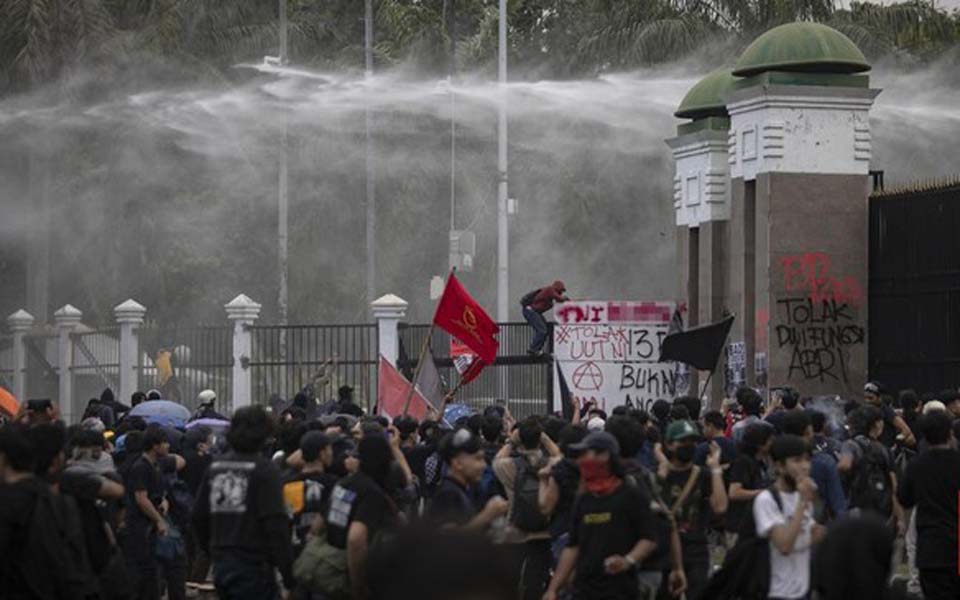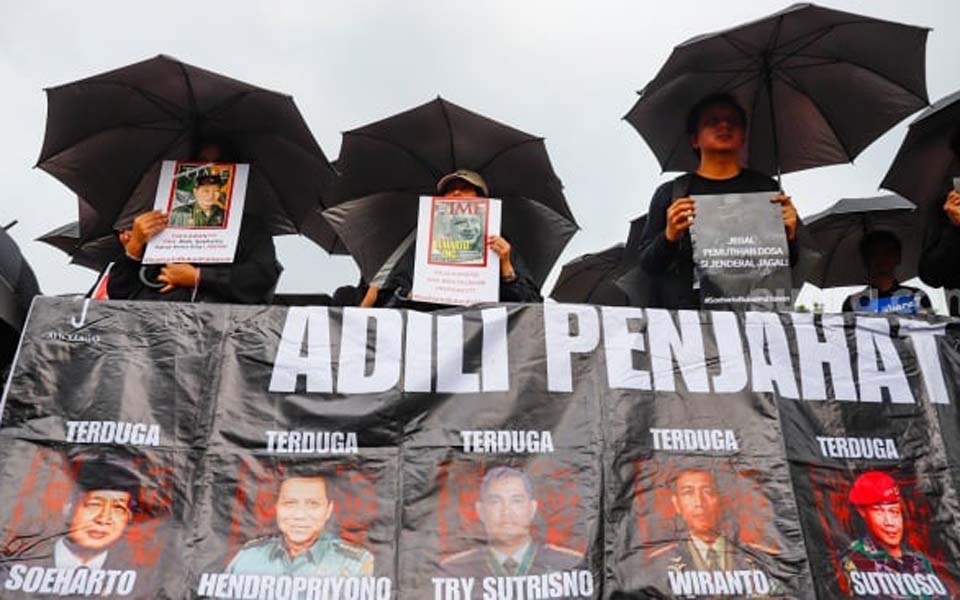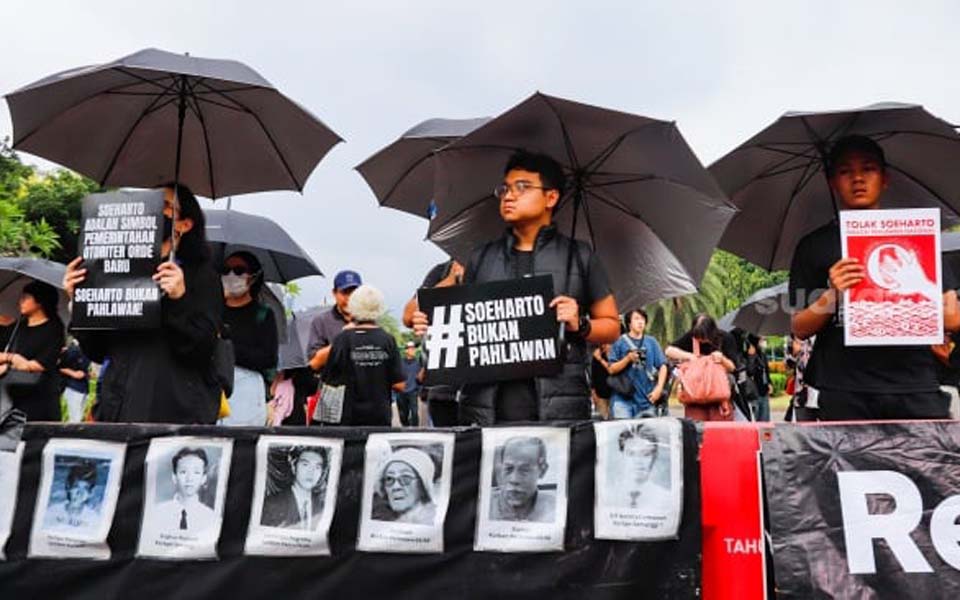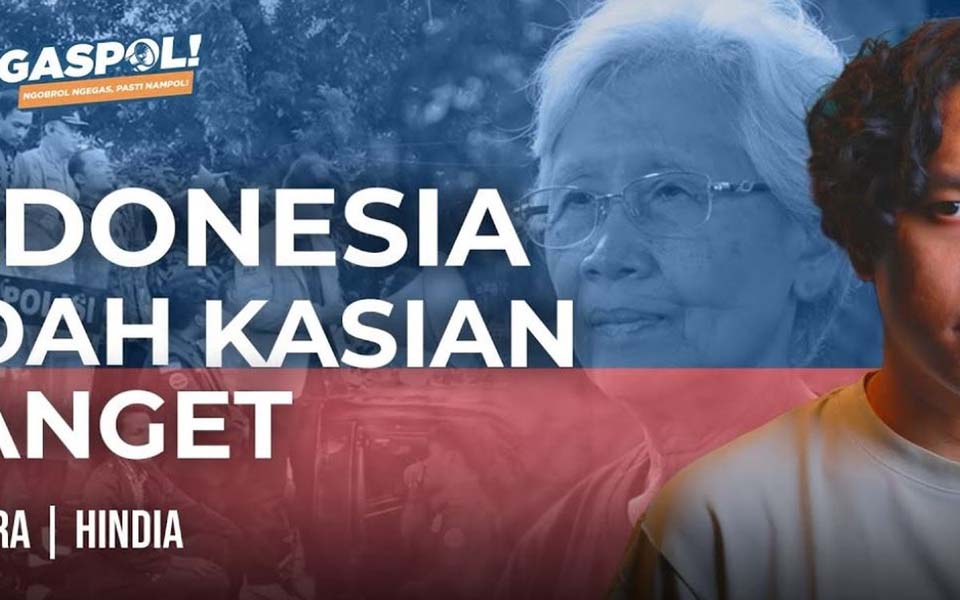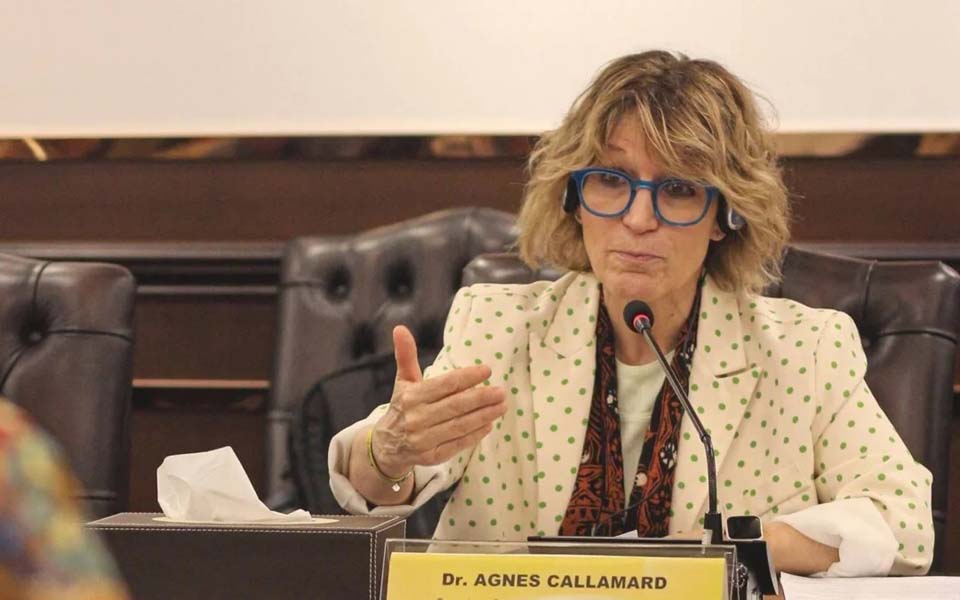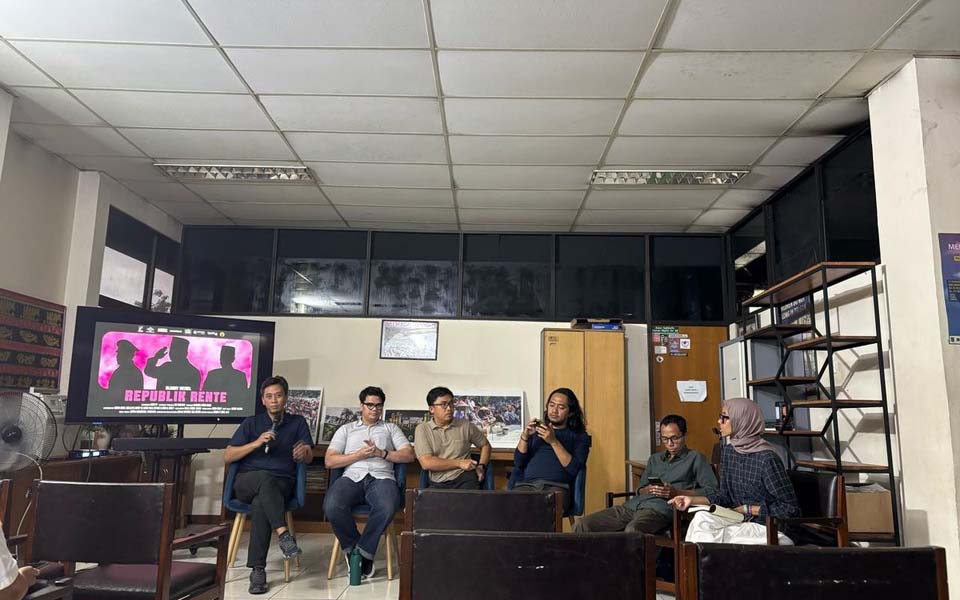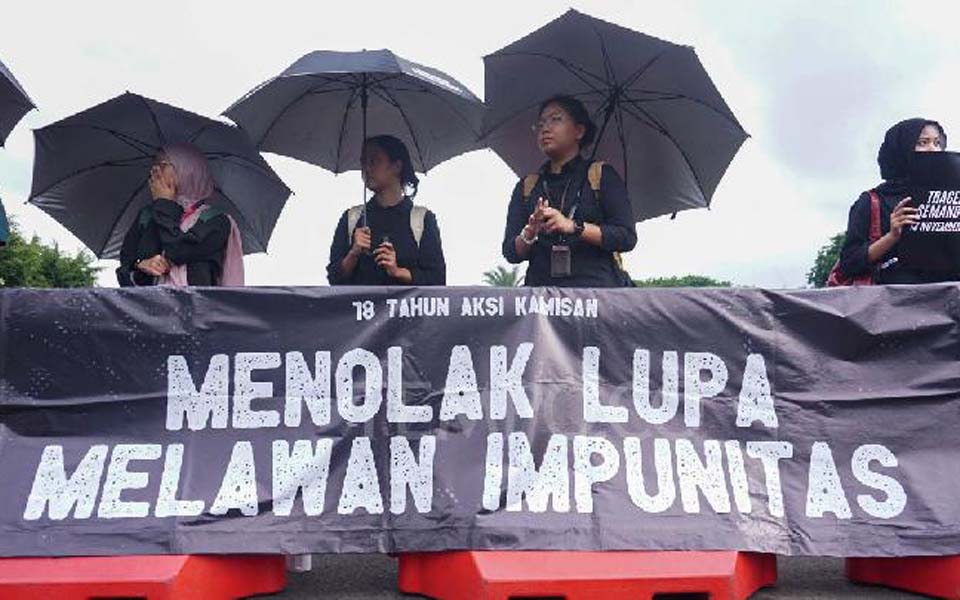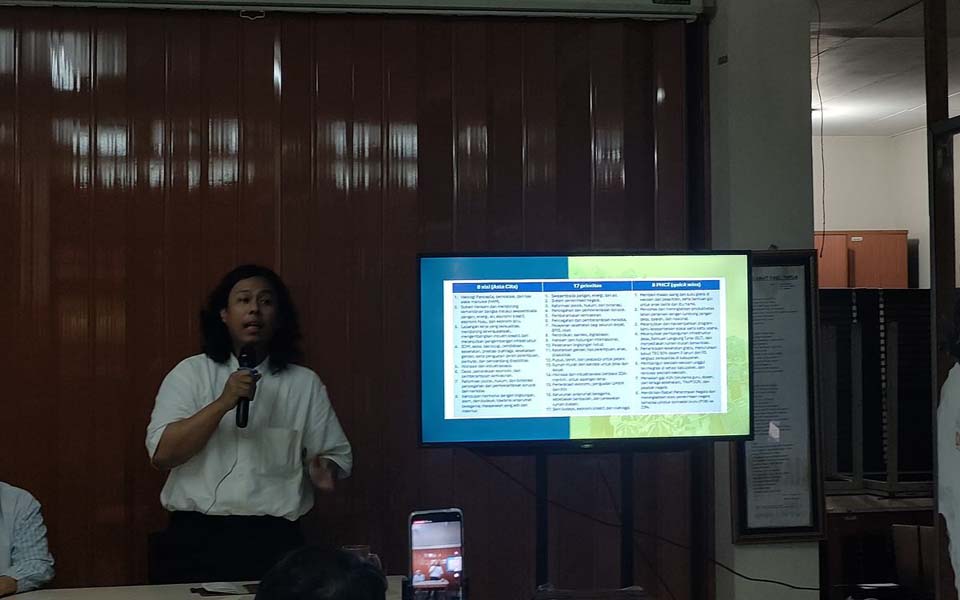Willy Widianto, Jakarta – Thirty or more demonstrators from the Indonesian Association of the Families of Missing Persons (Ikohi) were arrested by police this afternoon for exceeding the agreed limit allowed for a demonstration at the State Palace.
“Yes, there were 30 people arrested because they demonstrated past the stipulated time of 6pm”, said Commission for Missing Persons and Victims of Violence (Kontras) impunity and monitoring Division head Yati Indriyani, when speaking with Tribunnews.com on Monday September 27.
According to Indriyani, the 30 are currently undergoing intensive questioning at the Central Jakarta district police station. “Currently [they are] still being questioned by the Central Jakarta district police over administrative issues”, she said.
Included among the 30 arrested people were action coordinator Mugiyanto and Ikohi activists Simon, Chris, Uli and Zezen. “Those questioned included me, Mugiyanto, Simon, Chris, Viktor, Uli, Zezen and so forth”, said Indriyani.
Indriyani said further that they will not be intimidated by the questioning of the Ikohi activists by police and the activists will continue to hold protest actions tomorrow until they are able to meet with President Susilo Bambang Yudhoyono. “We will coordinate in more detail, the plan is we will still hold an action tomorrow”, she asserted.
Earlier this afternoon, scores of parents of activists abducted in 1997-1998 and other victims of human rights violations from Jakarta and other parts of the country established a “tent of concern” in front of the State Palace on Jl. Medan Merdeka Utara in Central Jakarta.
They demanded that President Yudhoyono take responsibility for implementing the recommendations of the House of Representatives’ special committee on the forced disappearance of 97/98 pro-democracy activists, which to this day the president has failed to respond to.
The plan was for them to establish a tent of concern in front of the Palace and stay there concern until Yudhoyono was willing to come out and listen to their demands in person.
According to the demonstrators, the action was a form of disappointment and distrust on the part of the families of victims over what the government has done up until now, particularly in relation to dealing with the missing persons case.
[Translated by James Balowski.]






